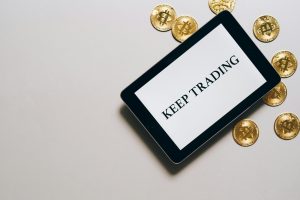The Role of Inflation in Eroding Your Savings Over Time
In today’s fast-paced economy, it can be challenging to save money for the future. Many people work hard to put money away, but over time, they find that their savings are not as valuable as they once were. This is due to a hidden culprit known as inflation. Although it may seem like a small and insignificant factor, inflation plays a significant role in eroding your savings over time. In this article, we will delve into the ins and outs of inflation and how it can affect your hard-earned savings.
The Basics of Inflation
Firstly, let’s understand what inflation is. In simple terms, it is an economic concept that measures the general increase in prices for goods and services over time. While some level of inflation is necessary for a healthy economy, since it encourages spending and investment, too much inflation can have a negative impact on consumers. This is because, as prices go up, the value of your money decreases.
For instance, let’s say you have $100 saved in a bank account that offers an annual interest rate of 1%. Inflation in a particular year was at 3%. At the end of the year, your account will have a balance of $101, but the cost of goods and services would have all increased by 3%. Therefore, your $101 can only buy you goods and services worth $98 in actual value. This is known as the purchasing power of your money.
The Impact of Inflation on Your Savings
It can be shocking to realize that inflation has devalued your savings. Many people understand the concept of inflation, but they do not realize how much it can affect their savings in the long run. With an average annual inflation rate of 3%, your savings will lose around 30% of its value in just 10 years. Therefore, if you had $100,000 saved for retirement, after 10 years, it would be worth closer to $70,000 in terms of purchasing power.
As prices continue to rise, the value of your savings will continue to decrease. This can be a challenging situation for individuals who are preparing for their golden years and counting on their savings to support them. If you do not account for inflation in your saving plans, you may have to face financial difficulties in the future.
Protecting Your Savings from Inflation
While it may seem like inflation is a force that you cannot control, there are steps you can take to protect your savings.
Invest in Assets that Outpace Inflation
One of the best ways to protect your savings from inflation is to invest in assets that increase in value at a faster rate than inflation. Real estate and stocks are popular options for this. However, it is important to note that these investments come with risks, so it is crucial to conduct proper research and seek professional advice before investing.
Start Saving and Investing Early
The earlier you start saving and investing, the more time your money has to grow. Compound interest allows your savings to increase in value, making it easier to combat inflation. The longer you wait, the harder it will be to build up your savings to match the increasing cost of living.
Save More and Spend Less
Inflation makes it essential to be more diligent with your spending. By controlling unnecessary expenses and saving more, you can increase the amount of money you have to combat inflation. Consider budgeting or finding ways to cut costs, such as buying in bulk or avoiding eating out frequently.
In Conclusion
The impact of inflation on your savings should not be taken lightly. It is crucial to understand this economic concept and take necessary steps to protect your savings from its effects. By investing in assets that outpace inflation, starting to save and invest early, and controlling your expenses, you can ensure that your hard-earned savings retain their value and continue to support you in the future.










